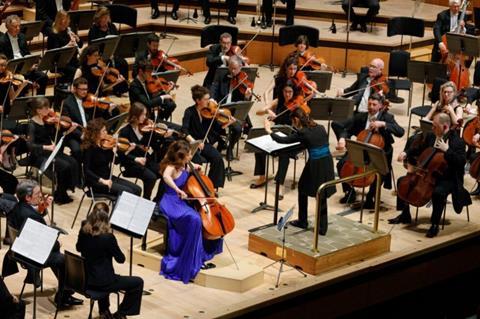Peter Quantrill hears the performance of Victoria Vita Polevá and Dvořák at London’s Royal Festival Hall on 9 February 2024

Martinů and Richard Strauss made music of lasting value in the aftermath of war, with the Memorial to Lidice and Metamorphosen. More frequently, composers have struggled to process their feelings as a direct response to conflict (compare the Seventh and Eighth Symphonies of Shostakovich). The Ukrainian composer Victoria Vita Polevá was moved to write her Fourth Symphony by the Russian invasion of her homeland, having fled Kyiv for Poland and then Switzerland. In exile, she has produced a 20-minute unbroken elegy for cello and large orchestra, subtitled ‘The Bell’.
Read: ‘It speaks to the heart’: Cellist Inbal Segev on Anna Clyne’s DANCE
Review: Inbal Segev: 20 for 2020: Vol.3
Read: ‘Inspired by the displacement and migration caused by global warming’: Inbal Segev
Inbal Segev was the committed soloist at this UK premiere just as she had been for the first performance last autumn in Dallas. While Segev struggled at times to make herself heard over a slowly shifting, cloudy mass of stepwise tonal chords and heavy tolling chimes, her tone retained an impressive core through long stretches of high-lying but directionless recitative. Beyond the immediate context of tragedy, the symphony stands in a line of orchestral threnodies by Polevá such as Ono (2004) and Null (2006), both comparably portentous.
Her compatriot Oksana Lyniv lifted the spirits after the interval with a superbly pointed account of Dvořák’s Eighth Symphony, eliciting first-class playing from the LPO.
PETER QUANTRILL











































No comments yet